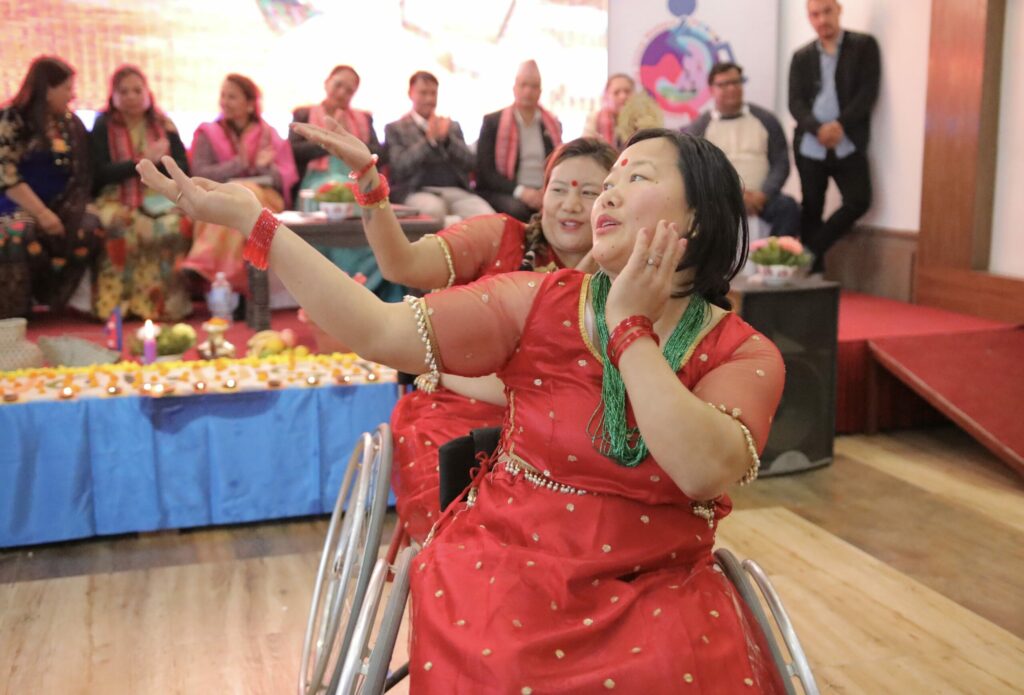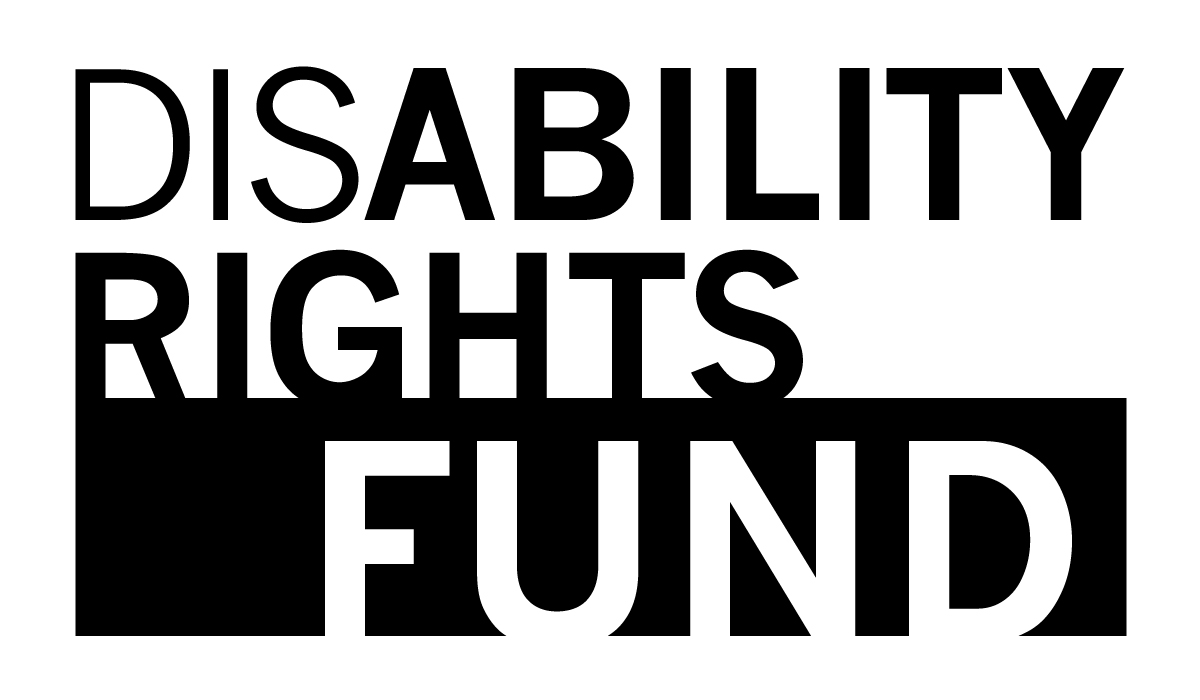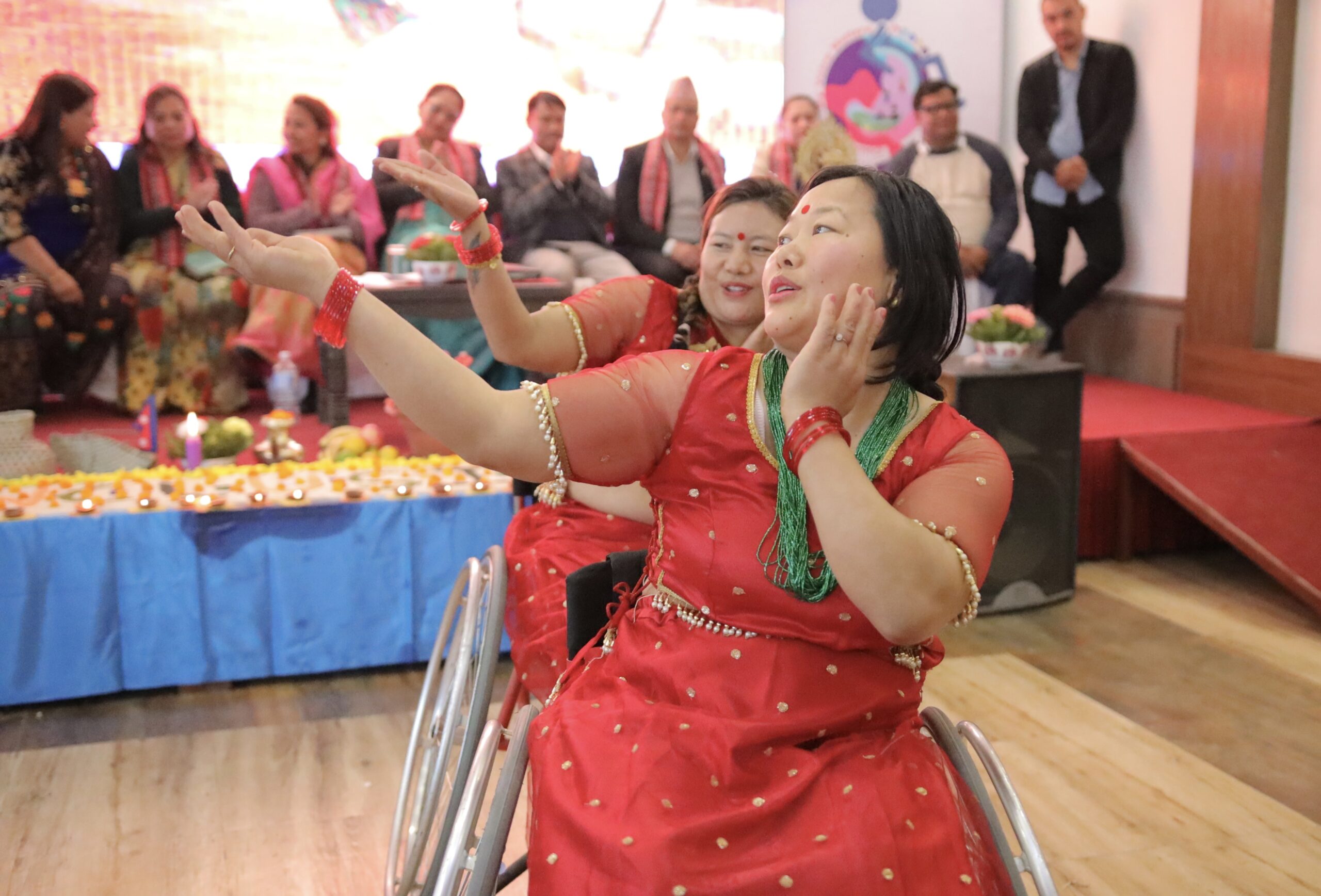From Catalina Devandas

“International Women’s Day is just one day in a year. We need intersectional solutions that demand equal participation of Dalit women and girls with disabilities in movements and decision-making spaces,” emphasizes Pampha Purkoti, Acting President of Dalit with Disabilities Association.
These words from Pampha deeply resonate with us. As we mark International Women’s Day, our staff is in Nepal celebrating with our grassroots feminist grantees. Just last week, they joined the first National Symposium of Women and Girls with Disabilities, which led to the launch of the Intersectional Feminist Forum. The Forum hopes to build cross-movement solidarity between feminist disability rights and broader disability and human rights movements. With over 120 intergenerational participants, the resounding cry was to end tokenism and exclusion. We thank our symposium partners—Blind Women Association, Pahichan, Access Planet, National Indigenous Disabled Woman Association and Feminist Dalit Organization. Watch our video celebrating these diverse intersectional voices for inclusion.
Everyday, we witness remarkable transformations led by women and girls with disabilities. Today, we celebrate their wins! Last year, DRF grantee, She Writes Woman, advocated with disability rights collaborators to repeal the ableist Lunacy Act in Nigeria. Meanwhile in Malawi, women with disabilities advocated with movement partners to pass a new Persons with Disabilities Act and ratify the African Disability Protocol. In Indonesia, Accessible General Election Center for Persons with Disabilities (PPUAD), another DRF grantee, advocated for inclusive elections, creating accessible polling guides.
Intersectionality is not just a buzzword; it’s a guiding principle that informs our work. We stand proudly with our feminist partners who are changing the narrative on inclusion.
Together, let’s commit to transforming rhetoric into feminist practices for global disability rights.

